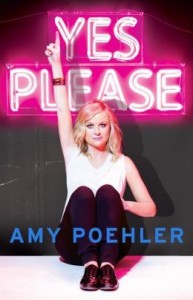 Title: Yes Please (Goodreads)
Title: Yes Please (Goodreads)
, 2014
Pages: 400
Buy: Amazon, Book Depository, Kindle (or visit your local Indie bookstore)
For those who don’t know Amy Poehler, then let me clear this part up first. Poehler is a comedian/actor who studied improv before working for Saturday Night Live from 2001 to 2008. In 2009 a spin-off from the American version of The Office was created and Poehler took the lead role in this show called Parks and Recreation. The character Leslie Knope is a perky, mid-level bureaucrat with big hopes and dreams in the small fictional town of Pawnee, Indiana. Parks and Rec follows this government department in a single-camera, mockumentary style as they try to jump through all the hoops to do something as simple as fill in the construction pit in an abandoned lot and create a park. The seventh and final season of Parks and Recreation is set to begin during the mid-season of the 2014–15 season.
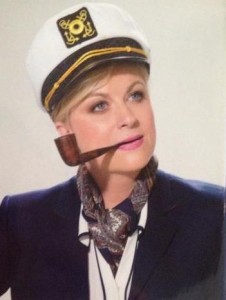
Amy Poehler is not the first Parks and Rec star to release a memoir; Nick Offerman’s (who plays Ron Swanson) book Paddle Your Own Canoe finds him musing about life, manliness, wood work and how to best grill meat. However Poehler’s book was marketed as companion to Saturday Night Live co-star and friend Tina Fey’s Bossypants, rather than Offerman’s memoir. This is possibly due to the huge success of Fey’s memoir and the fact the two often work as a comedy duo.
I picked up Paddle Your Own Canoe as an audiobook because I liked the idea of Ron Swanson narrating and I decided to do the same with Yes Please. Amy Poehler made the audiobook a unique event, with guest stars and banter that I don’t expect appeared in the book. This allowed the listeners to enjoy a different experience to that of reading the book which I know has some pictures to look through instead. I have stopped listening to fiction in audio form because of personal preferences, which has allowed for more podcasts and non-fiction audiobooks. I feel like non-fiction and memoirs seem to work really well as audiobooks; I am not sure why but it just works really well.
What I found interesting about Yes Please was the memoir style; this wasn’t told in a linear format, rather a collection of essays that went back and forward depending on the topic. I really liked this style it allowed more focus on particular topics and allowed Amy Poehler to explore things in her own way. I was also impressed with how strong and confident she comes across in the book; when it came to talking about her divorce with Will Arnett she just simply stated it wasn’t a topic she wanted to go into and then moved on. I think people expect all the juicy and dark details on someone’s life in a memoir and I liked how she just brushed it off, proclaiming “This isn’t a topic I wish to share”. She does share some darker moments but for the most part she wants to come across as a positive and happy person.
Amy Poehler has a strong and passionate attitude towards life and in the end Yes Please really wants people to know that it is okay to be yourself. There were tender moments throughout the book and if you are a fan of Parks and Recreation, you might tear up when she shares her love towards every star within the show. She also spends a lot of time talking about her improv days and trying to make it into show business, reminding people persistence and passion is needed; if you love what you do, then why do anything else.
I really enjoyed reading Yes Please, maybe not as much as Paddle Your Own Canoe but it was still interesting to learn about someone’s life. While some may think that Amy Poehler has let the reader down by refusing to share some parts of her life, I think it really showed integrity. Just because she is an actor doesn’t mean her life is an open book. Parks and Rec fans should pick up this book, but also anyone interested in reading a memoir about someone passionate about life and their job will find Yes Please a great book.

 Title: Ariel (
Title: Ariel ( Title: Tragedy of Macbeth (
Title: Tragedy of Macbeth ( Title: Wonder Boys (
Title: Wonder Boys ( Title: The Elegance of the Hedgehog (
Title: The Elegance of the Hedgehog (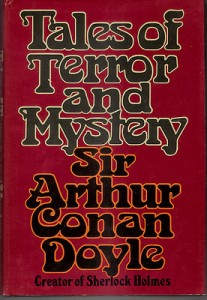 Title: Tales of Terror and Mystery (
Title: Tales of Terror and Mystery ( Title: We Are All Completely Beside Ourselves (
Title: We Are All Completely Beside Ourselves (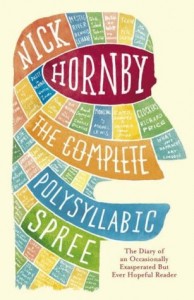 Title: The Complete Polysyllabic Spree (
Title: The Complete Polysyllabic Spree (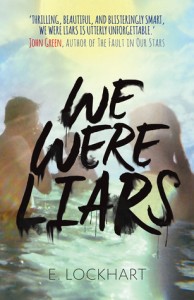 Title: We Were Liars (
Title: We Were Liars (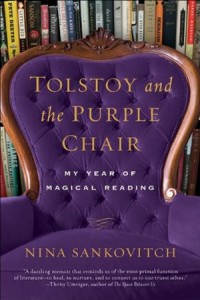 Title: Tolstoy and the Purple Chair (
Title: Tolstoy and the Purple Chair (